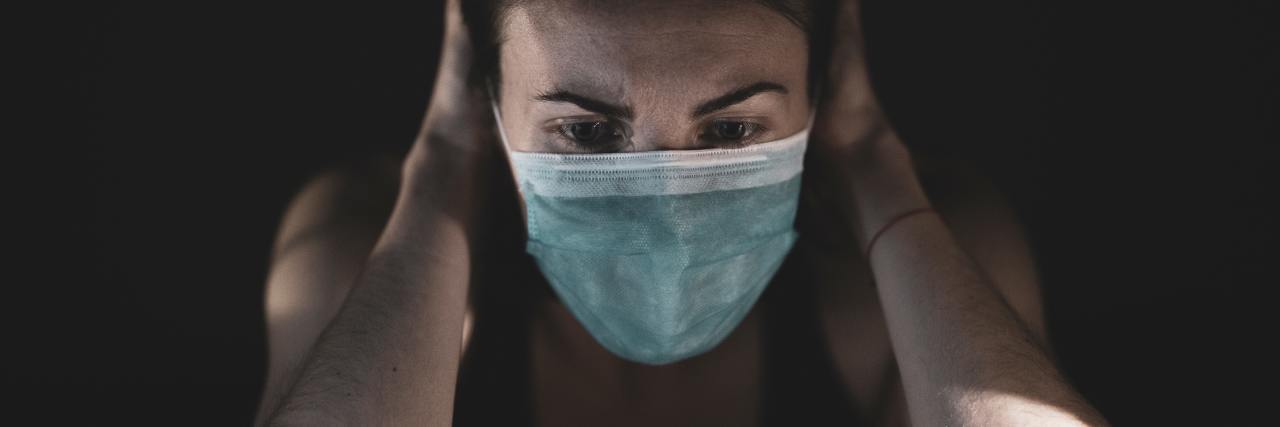Full disclosure: I’m guilty of everything I’m about to discuss, which is why I thought I’d share what I’ve learned.
Over the last month of sessions with my therapist, since stay-at-home orders due to the coronavirus (COVID-19) have been in place, several themes have arisen that are apparently consistent with patients across the board, regardless of their original reason for seeking therapy. I distilled these down into a cogent list of “mental health sins” that are causing us more stress and making coping with this crisis even more challenging.
1. Shoulding.
Let go of “should.” It’s hard enough to deal with just day-to-day survival without putting pressure on ourselves to do more than we are capable of. The hyperfixation on productivity — or as my therapist calls it, “busyness” — is creating a sense of perceived failure which makes us feel even more helpless and powerless than we already do. Just because we have more time doesn’t mean we need to fill it. Right now, it’s super important to listen to our bodies and minds and to respect our needs, which may not involve doing anything. And that’s OK.
2. Perfecting.
There’s no such thing as the “perfect” or “right” way to survive a pandemic, or life in general. It’s easier to strive for “good enough.” My default setting when I feel a loss of control has always been overachieving and hyperfunctioning, as if putting that pressure on myself is somehow going to help me regain control. It’s not. In fact, it’s making me feel even worse. If you think you can be perfect, you’re going to let yourself down, and that’s a recipe for depression and anxiety to set in.
3. Comparing.
Just because someone else may have it worse than you doesn’t mean your experience isn’t sad or traumatic. Yes, people are sick and dying. Yes, many people are unemployed and struggling to put food on their tables. Yes, businesses are going under. All of that is true and it’s sad. Having empathy for that is right and human. That doesn’t negate your struggle with homeschooling, working from home or dealing with your existing mental health struggles. Human suffering isn’t a competition. Loss is loss. Grief is universal. Don’t deny yourself that acceptance of your loss and let yourself grieve it, whatever it may be.
4. Numbing.
It goes without saying that feeling some feelings can be challenging. We have a tendency to avoid feelings like anger, sadness and helplessness because they are uncomfortable. So, we repress them in any way we can. We distract with projects, we self-medicate, we say we are fine until we believe it. The thing is, you can only deny those feelings the light of day for so long before they find a way of bubbling up. And when they do, they come out with a vengeance. So, “feel your feelings.” They won’t kill you, even if they feel horrible. They are useful information for you in terms of where your challenges are and ultimately, they are proof that you are human.
5. Isolating.
We are in a moment of collective trauma which is being exacerbated by the fact we are social distancing. It seems like we have to do this alone, but the reality is that we don’t. There are plenty of ways we can connect with our loved ones and support system, even if it’s not face-to-face. Don’t go it alone. There’s nothing more healing than having someone else say “me too.”
6. Minimizing.
“It isn’t that bad” is the hallmark statement of minimizing. While similar to comparing, minimizing is the belief that what you are experiencing doesn’t matter or isn’t worth seeking help for. Something doesn’t have to be debilitating or life-destroying to affect your health and well-being. Along with this is the assumption that “I should be able to just deal with this myself,” or “I’m overreacting.” We all deal with thing’s differently. Just because your friend isn’t upset about not getting to go to prom doesn’t mean you can’t be. It’s a loss and it affects you. Period. End of story.
7. Ignoring.
Don’t ignore your mental or physical health and well-being. If you feel yourself slipping back into anxiety, depression or any other mental or physical health struggle, don’t ignore it. There are a lot of folks struggling and it’s common for this kind of situation to trigger previous mental and physical health struggles we may have thought we had already healed. That’s OK. It’s not a flaw, there’s nothing wrong with you, you haven’t failed. If you are currently seeing a therapist or doctor, communicate this with them. Chances are you aren’t alone. If you aren’t currently seeing a therapist or doctor, there are a myriad of resources out there to help, ranging from telehealth to crisis hotlines. Don’t be ashamed to use them. Don’t struggle in silence. There’s no stigma in reaching out for help.
We are living through unprecedented times. Nobody has all the answers and there’s no right way to live at the moment. Let’s not put undue pressure upon ourselves or one another to be superhuman. We are all in this together. I, for one, plan to focus on being more forgiving of myself and on taking my own advice. Virtual pinky swear.
Struggling with anxiety due to COVID-19? Check out the following articles from our community:
Photo by Engin Akyurt on Unsplash

